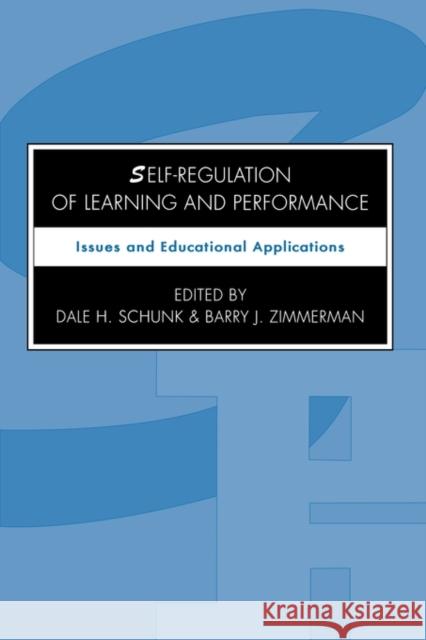Self-Regulation of Learning and Performance: Issues and Educational Applications » książka
Self-Regulation of Learning and Performance: Issues and Educational Applications
ISBN-13: 9780805813357 / Angielski / Miękka / 1994 / 344 str.
In recent years, educators have become increasingly concerned with students' attempts to manage their own learning and achievement efforts through activities that influence the instigation, direction and persistence of those efforts. In 1989, Zimmerman and Schunk edited the first book devoted to this topic. They assembled key theorists offering a range of perspectives on how students self-regulate their academic functioning. One purpose of that volume was to provide theoretical direction to ongoing as well as nascent efforts to explore academic self-regulatory processes. Since that date, there has been an exponential surge in research. This second volume on academic self-regulation offers the fruits of the first generation of research. It also addresses a number of key issues that have arisen since then such as how self-regulation differs from such related constructs as motivation and metacognition, and whether students can be taught self-regulatory skills. The contributors reveal an interesting, uplifting, and at times, disturbing picture of how students grapple with the day-to-day problems of achieving in circumstances with inherent limitations and obstacles. This volume provides insight into the source of students' capabilities to surmount adversities -- the origins of their self-initiated processes designed to improve learning, motivation, and achievement.
The text is organized on the basis of a conceptual framework that analyzes academic self-regulation into four major dimensions. That model is presented in the first chapter, and key processes that influence each of these dimensions are discussed by prominent researchers in the chapters that follow. Because each chapter is written to follow a common format, this work provides a level of continuity and parsimony normally found only in authored textbooks.











